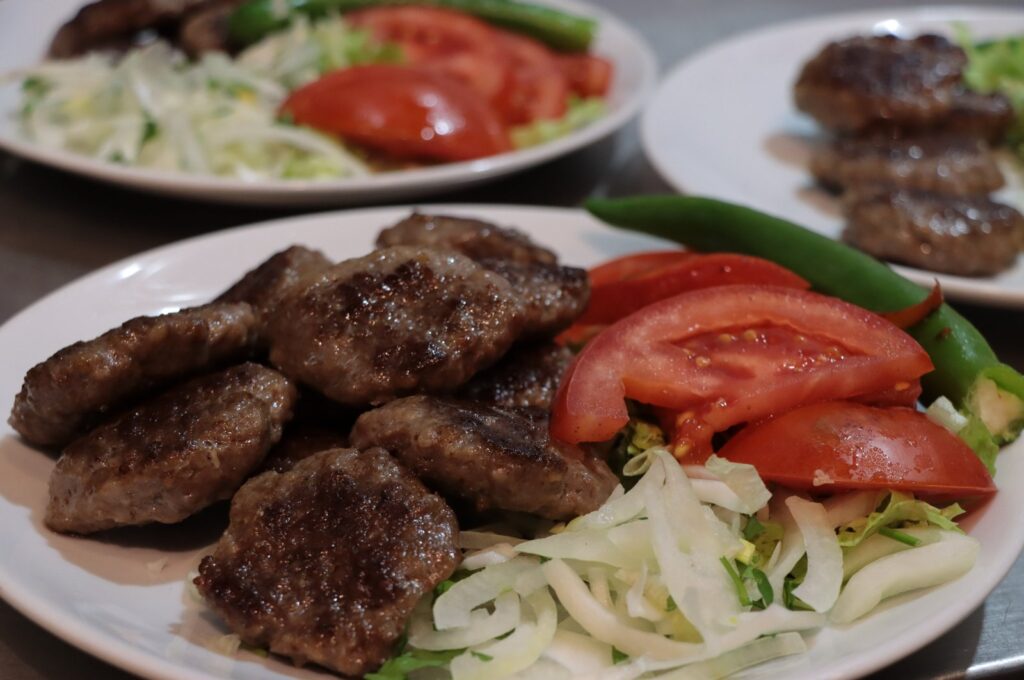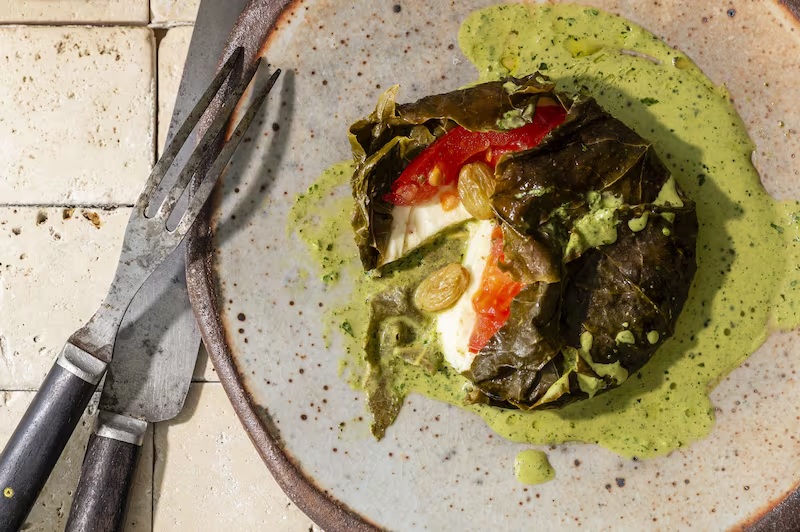
Monitoring Desk
ANKARA: Khadija Ali’s restaurant in the Turkish capital Ankara is a success in more ways than one. She both promotes dishes from the Horn of Africa and employs immigrant women like herself.
The Ethiopian entrepreneur moved to Ankara in 2018 and opened the Blue Nile, the city’s first and only Ethiopian restaurant, serving traditional cuisine with all its spices and condiments, including injera, Ethiopian sour flatbread.
“My late husband was of Turkish origin. He was a senior official in an Ethiopian company. There is where we met and married and had a good life,” she said. “Usually, we used to come to Turkey for vacations,” she said, adding that unfortunately her husband got sick in Ethiopia and was diagnosed with cancer. “It took him away from us last year,” she said.
Despite the impact of COVID-19 on her business and the other obstacles she has endured, Khadija has never considered returning home. Instead, she is determined to work hard and make her dream a reality by opening more branches of her eatery in Turkey.
The restaurant, located in the heart of Ankara, serves not just Ethiopian cuisine but also Ethio-Turkish, Somali, Djiboutian, Sudanese and Eritrean dishes, which have many cultural similarities. “I cook Turkish meals in an Ethiopian style, and Turkish customers that come adore our food,” she explained.
The decision to launch the restaurant did not just come from the need to take care of her family, but also from Khadija’s desire to share the flavors of her East African heritage. Through the restaurant, she hopes to pursue her passion for cooking and baking by opening new branches across Turkey. “I am the only one who bakes Ethiopian sour flatbread in Turkey. And I plan to export it to Europe,” Khadija said. “I have dedicated my life, and will not stop until I realize my dream of having an international standard restaurant serving East African cuisine,” she said.
Khadija said that she normally works 16 hours a day to keep the restaurant up to standard, adding that she is restructuring it as a family business with the help of her younger brother and sister. “My brother and I cook together here. We both took hotel management courses, worked at 5-star hotels in Ethiopia and owned a restaurant there,” she said.
Noting that she feels a sense of belonging in Ankara, Khadija said: “I have two daughters, one is 6 years old and the other is 8. I want my children to grow up here. Turkey is very beautiful and clean. I also became a Turkish citizen.”
Prior to her husband’s death, Khadija made him a promise that their children would be raised by his mother, she explained. “Now, the kids are staying with their grandmother, we only see each other over the holidays. My husband’s family also helps me because I make my living here,” she said.
Many Ethiopians in the city admire Khadija’s kindness and support to others who have been financially impacted by the pandemic. “She was giving her restaurant stocks to those who ran out of food and money during the pandemic,” said Mahir Mohammed, a student in Ankara who worked with Khadija during the pandemic. “When we have personal problems, such as money needs, she lends us some, even if she is not much wealthier than us … If we want to get a job, she tries to reach out to her connections and find a job for us,” Samrawit, one of the Ethiopian residents in Ankara, told Anadolu Agency (AA) on Monday.
“Her restaurant is like a second home to us,” she added.
Shortly after opening her restaurant, the first case of COVID-19 was reported in Turkey and that year Ankara went into its first and longest lockdown. The pandemic has unexpectedly affected her business, the mother of two said.
As an immigrant, familiarizing oneself with Turkish culture and learning the language are added challenges in already difficult circumstances. To make matters worse, her husband died five months after launching the restaurant, which had already been adversely impacted by the pandemic lockdown. “There were times when I could not pay the bills, and I got into many debts during the pandemic. But I did not give up. I got a loan, paid off some of my debts and continued to operate my restaurant,” she explained. Though business is improving, the pandemic has had a significant financial impact, she added.
When she first opened the restaurant, she employed seven workers. Now, she employs four since things have slowed down due to the unhealed economic effects of COVID-19.
Courtesy: (Dailysabah)
The post Ethiopian immigrant brings Horn of Africa flavors to Turkey appeared first on The Frontier Post.







